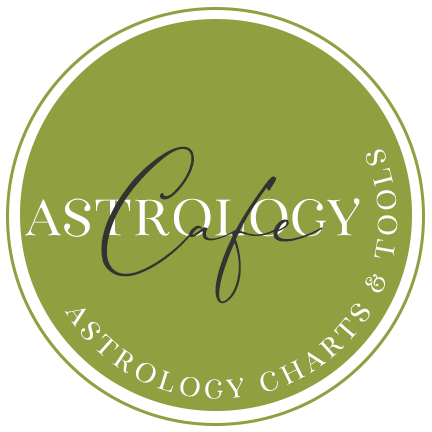Challenged Neptune in Relationships – Synastry
Challenging Neptune Aspects in Synastry (Relationship/Compatibility Analysis)
Here, I am looking at relationships in which one person’s personal planet is in hard aspect to the other person’s Neptune.
 When Neptune is challenging and prominent in chart comparison (synastry), the relationship can survive, but if it does, disappointments and disillusionments need to be handled effectively, or they will drain the “owner” of the personal planet. When the relationship does end, it’s also extremely important for the personal planet person to let go, as the Neptune person has a way of lingering–sometimes literally (returning periodically to try to renew the ties, or sticking around but maintaining emotional distance), but typically in the mind of the personal planet person, who may not know how to close this relationship emotionally. It is not uncommon for a person who has been involved with a difficult Neptunian relationship to hold onto the pain for months if not years. This applies to all personal planets, Sun through Mars, but on a more challenging level emotionally/romantically when it’s the Moon or Venus involved. The personal planet involved is important, of course, but there are general themes that can apply to all.
When Neptune is challenging and prominent in chart comparison (synastry), the relationship can survive, but if it does, disappointments and disillusionments need to be handled effectively, or they will drain the “owner” of the personal planet. When the relationship does end, it’s also extremely important for the personal planet person to let go, as the Neptune person has a way of lingering–sometimes literally (returning periodically to try to renew the ties, or sticking around but maintaining emotional distance), but typically in the mind of the personal planet person, who may not know how to close this relationship emotionally. It is not uncommon for a person who has been involved with a difficult Neptunian relationship to hold onto the pain for months if not years. This applies to all personal planets, Sun through Mars, but on a more challenging level emotionally/romantically when it’s the Moon or Venus involved. The personal planet involved is important, of course, but there are general themes that can apply to all.
The Neptune person can come on strong at the outset, and then slowly fade away, or in some cases abruptly leave. Most of the time, he or she hangs around, whether physically or (and most of the time) psychically. It’s hard to get the Neptune person out of your system, mainly because there can be a lack of closure, a lack of answers as to why that person “faded out”, became inaccessible, or disappeared. It is extremely important that, in a failed relationship in which the Neptune person has faded away, that the personal planet owner does whatever is possible to close it, and the sooner the better. Sometimes this involves giving up on getting solid answers or reasons for the breakup. The Neptune person may have become frustrated with a partner who never seems to be satisfied, and vice versa as well.
The personal planet person is most likely to idealize, romanticize, or otherwise assign qualities to the Neptune person that are exaggerated or imagined altogether. The Neptune person can also do the idealizing. The relationship can begin with great enthusiasm, but it can end with bitter disappointment or emotional pain. There can be an ongoing sense of needs not being met, of longing, of chasing a dream that never seems to completely fulfill itself.
It’s important to remember that the Neptune person is not the “bad guy” and the personal planet is not the “victim” in this kind of scenario, even if it often appears to be the case. There is something there that seems to need to be played out. There is a back-and-forth in which the personal planet person might unwittingly encourage the Neptune person to deceive or mislead. In fact, in some and perhaps many scenarios, the Neptune person attempts to mirror the enthusiasm of the personal planet person, and to live up to his or her expectations. This can be considered deception, but whether it’s deliberate or ill-willed is debatable. In this case, the relationship might end with the personal planet owner feeling let down, deceived, misled, disillusioned, etc…but it can be ironic because the Neptune person might set out to do whatever it is possible to not let down or disappoint his/her partner.
With a natal Venus-Neptune square, and involvements with friends and romantic partners who always seemed to be born in the years surrounding my birth year and whose Neptune thus squared my Venus, I feel like I have experienced most of the possible scenarios of Venus-Neptune relationships. Although I have played the role of the personal planet person, in this case Venus, mostly, I have also done the Neptune role, so I do have some sympathy for both sides. Ultimately, though, it’s better not to assign blame, as it is a dance that seems to need to play out for both parties.
I had a friendship with a woman with whom I parted shortly after I separated from my husband. She was completely hurt that I announced to her that I was separating, with no warning that things were going in that direction. The truth of the matter is, I had not warned her at all that I was having problems, and she felt that as her best friend, this was on some level a crime. With retrospect, I realized that I had fed her idea that we (my ex-husband and I) were the perfect couple, simply by not contradicting her when she made such statements and observations. I never claimed that we had a perfect relationship, so this was more of an error of omission. There were two reasons I gave myself for allowing her to believe that my marriage was fabulous. One was my need to work on problems with my partner without outside “interference”. I believed that if I complained about my husband, my friends and family would take my side, and there are always two sides to the same story. I thought it respectful to keep problems between us, and to deal with them in that fashion. That was the more “noble” of the two reasons. The other was my own need/desire to not burst her bubble. So, when she confronted me with the idea that I had deliberately kept things from her, I felt frustrated that I had to defend myself for my choice, preferring that she trust me that I was not separating just for kicks–that I had valid reasons.
Errors of omission are Neptunian. Denial and procrastination can also be considered deceptive, depending on who is doing the judging. The person who is taking on the role of Neptune may not be using deceptive practices deliberately or consciously.
The personal planet person might be choosing, whether it’s a conscious choice or not, to be deceived. Some years ago, I found a Hubba Bubba t-shirt that read “Don’t burst my bubble” which amused me on some level, as I thought this is what the personal planet owner may as well wear.
For example, the Venus person might gloss over or overlook certain traits or activities of the Neptune person. There are many cases in which, for example, a person knows or senses on some level that their partner is having an affair, and doesn’t feel equipped to deal with it, and thus chooses to try to fool him or herself. The Venus person might convey the message to their partner that they want to know only the good things, not the cold hard facts. This can happen when, for example, a woman might react with shock or hurt when her partner tells her something she doesn’t want to hear. After a few such incidents, the partner might decide to avoid saying these things altogether, and thus feeds the illusion.
I have discussed a problem with a man I know that he has been having with his wife, with whom he is separating from. He is the Neptune person, she is the Venus person (there’s a square there in synastry). It’s always interesting to experience the perspective of each side. In this case, he has been trying to separate for some time, and although she has agreed to the separation in words, she doesn’t truly want it, and is not making it easy for him to cut the ties. Every time he feels he might be making progress, something happens that makes him feel responsible for her, and when she sees that happening, she insists that it’s because there is still a chance that the relationship is salvageable.
Another scenario involves a woman who is still very much hung up on a man who she was seeing on and off for about 2 years. The man stopped contacting her completely, without an explanation. It has been 3 years since the relationship ended, and although she has continued to date other people, she always brings up this man. The relationship ended, but it was not dissolved in her mind, and she drove herself up the wall trying to figure out what happened. She even told me that she feels like he is a dark cloud hanging over her, preventing her from moving on.
I don’t think we are able to completely snow ourselves though, as much as we might want to, and this is evident in the emotional ups and downs of the personal planet person attached to the Neptune person. One day, they might trust Neptune completely, the next, they might be suspicious. So, there can be an ongoing struggle. The problem may be that our own expectations of ourselves are set too high, not only the expectations from the Neptune partner.
The personal planet person can feel like they are constantly taken advantage of by the Neptune person, yet seems to be hopelessly addicted to the person. The word “addicted” is not a surprise when Neptune is involved. The personal planet owner might be investing a lot of time, energy, and possibly money in some cases, into the relationship and the Neptune person seems to be taking these things without returning the favor.
The Neptune person can be perceived as a tease, as someone who is leading the other person on, or as someone who promises something (or seems to promise something) that never comes true. The Neptune person can stay just out of reach.
There are many ways that Neptune in synastry can play out, and everything depends on the individuals involved (how easily they fall into a Neptune role, for example, or how conscious they are of their behavior) and also the other synastry aspects involved in the relationship. If it’s a longterm relationship, there can be definite stages to the interplay. I don’t want to imply that the personal planet person is the one who is interested and the Neptune person is at first, then loses interest. This can happen in short-term relationships, but in longer-term relationships, the dance can vacillate. Neptune is intrigued with the personal planet’s enthusiasm and ardor, and can be quite dependent on it. If the personal planet person shows any signs of losing interest, Neptune might become distant and hard to reach in a manipulative attempt to win back the personal planet’s interest.
With Neptune strong in a relationship, there seems to be a promise of an extraordinary union, which some might consider a soul mate union, but not without a lot of work and complications along the way. This can be highly addictive to people who are seeking it. Those who fear or would prefer to avoid the complications of such a union might run scared, but both parties can be addicted to, or mesmerized by, the relationship. There is usually an element of lack of fulfillment that is ongoing. There is a longing for something just out of reach, and a desire to love unconditionally. The parties involved can easily find they are lost in each other, or lost in the relationship, without rules and boundaries that keep them feeling safe and secure. Both parties can feel dependent on each other, even if it is more typical that the Neptune person ultimately renders him or herself inaccessible.
With Venus-Neptune, the Venus person might feel that the Neptune person romantically departs, or is just out of reach romantically speaking. With Moon-Neptune, it’s on an emotional level, and dependency is the main “issue”.
With Mars-Neptune, it can be a highly sexual interplay. On a basic level, the Neptune person might initially come on strong, then begin to lose sexual interest. Or there can be a teasing going on, wherein the Neptune person always seems to promise sexual fulfillment. However, it is often about taking the lead in a relationship, broken promises about desires and activities, or the direction of the partnership. The Neptune person might seem to promise a certain direction to the partnership that doesn’t come to pass. Or, the Mars person might find the Neptune person retreats or even cowers when he/she asserts himself, and problems don’t seem to get resolved easily.
A more likely scenario with Mars-Neptune is that the Neptune person is attracted to the Mars person’s ability to take the lead and to direct the partnership, but then later resents this very fact. There can be sexual idealization here. With both Sun-Neptune and Mars-Neptune, the Neptune person may be deeply fascinated with and attracted to the Sun or Mars person’s power, but then later might feel overwhelmed by it, feeling that he/she loses him or herself in that power. There is a simultaneous fear and attraction on Neptune’s part.
So, for example, if my Neptune squares my partner’s Mars, I might be drawn to his expression of masculinity, perhaps finding his more domineering and assertive qualities intensely fascinating and sexually appealing, and thereby encouraging these traits in him. However, over time I might begin to feel resentful of my dependency on him for these very same traits. He might seem to direct the partnership, to take the lead, and although on some level I want him to, on another level I might fight these feelings and resent his control over me or over the relationship. If this plays out in the bedroom only, where role-playing can be considered an exciting and satisfying game, and if the Neptune person enjoys a submissive role, and the Mars person a dominant role, then this can definitely work! However, it can be tricky to handle in everday life.
Relationships that feel addictive because they are troubled and unnecessarily complicated are usually Neptunian, although Pluto relationships can also feel like that, only Pluto challenges tend to be more about power. Relationships that seem to be grossly imbalanced, where one person is making many sacrifices in order to keep the relationship alive are also Neptunian in flavor.
I also know a woman who is in a relationship that is really an extreme case of Neptunian addiction. She is a single woman who has been seeing a married man on and off for 6 or 7 years. She complains about him constantly, about how he uses her for sex and never considers her needs, and breaks up with him for it. However, she never cuts the ties when she breaks up with him, he reappears and asks her to meet, she meets him, and she is back to square one. They have been through too many breakups to count, and her life, she says, is miserable. This is an extreme example, of course. I suspect that one of the roots of the problem is that she is over 6 feet tall and self-conscious about it (she also talks about her height a lot). She is afraid to move on and face rejection with a new man, instead falling back on a relationship with a man who has already accepted and enjoyed her height. Although this is a simplistic explanation, and there are many more reasons for the attachment, it’s one example of low self-esteem that complicates matters.
I think the key to managing a challenged Neptune in synastry in a long term relationship is to be more conscious of our behavior, and this has to be the responsibility of both people involved. Finding a balance is very hard to do with Neptune involved, as Neptune’s role is to dissolve boundaries. We tend to exaggerate traits that we want to see, and gloss over or underplay traits that we don’t want to see in our partners. In some cases, we can do the opposite — that is, overplay negative traits and underplay positive ones. Either way, we are failing to look at the person realistically. We are effectively projecting our own dreams and ideals, or fears, onto a person, instead of accepting them for who they are. If the goal is unconditional love, support, or acceptance, then we have to acknowledge the good and the bad, and not in exaggerated proportions either.
I think any time we are seriously shocked or bitterly disappointed with our partner, it’s a big sign that we haven’t been seeing them in a realistic light. It’s normal to go through small ups and downs as we learn about one another in a partnership, but if the discoveries are dramatic, then we’ve been missing important signals. It is possible to go through the ups and downs of idealization and disillusionment for some time before getting to a comfortable place of acceptance with Neptune difficult in synastry.
It’s certainly helpful to have other “anchors” in the chart comparison, and willingness of both individuals to work on the relationship. If you feel you are making many sacrifices in order to be with a person, it can be helpful to either accept the sacrifices as something you want to do (where they can no longer be considered sacrifices), or to take action and ask for what you are missing, or cut out any behavior that makes you feel badly about yourself. When you think about it, relationships do need adjustments, but not sacrifices. If you consider the adjustments you are making for a partner as major sacrifices rather than adjustments, then it’s time to reassess matters, because with anything considered to be a sacrifice, serious guilt trips and resentments are going to be active and very destructive to the relationship.
So, sometimes it’s more about adjusting our own expectations from others, and taking responsibility for our actions instead of assigning blame to our partners. I find it helpful to do a reality check whenever I catch myself thinking in “victim” or martyr terms. Nobody is pointing a gun to my head to do the things I am doing. I have to “own” my behavior by cutting out the things that I’m doing that make me feel like I am not in charge of my own life. Sometimes it can mean quitting an addictive Neptunian relationship cold turkey, learning about ourselves and our ideals from the experience, and moving on. But before doing that, we might try cutting out the behavior that makes us feel like powerless victims and discovering whether the relationship can survive in their absence.
2009-07-03 09:30:11
See also More on Venus-Neptune in Relationships, Synastry, Predicting Love Relationships and Predictive Astrology.
We offer a Midpoint Report – this computerized report lists and interprets all of the midpoint pictures in the natal chart, as well as midpoint pictures created over time: transits, progressions, and solar arc directions to midpoints in the natal chart, for 6 months.
References & suggested further reading:
(1) The Combination of Stellar Influences by Reinhold Ebertin offers interpretations of midpoints and planetary pictures. A classic.
(2) Midpoints: Unleashing the Power of the Planets by Michael Munkasey offers interpretations and keyphrases for midpoints and planetary pictures. More modern definitions.
**Please note: Some of my recommended products contain affiliate links. If you purchase a product through my links, I may receive a small commission. I only include these because it comes at no cost to the buyer -- there are no additional charges and it does not cost a customer anything extra to buy through an affiliate link. I am a participant in the Amazon Services Associates Program–an affiliate advertising program designed to provide a means for sites to earn advertising fees by advertising and linking to amazon.com and products on that site. I only add links to products that I have personally used and recommended.
More to Explore at Cafe Astrology:
- Articles: Learn Astrology
- The Astrology of Love & Sexuality
- Compatibility
- Recommended Astrology Books
- Best Times for Business Success, Good Luck, and Romance & Sexuality











